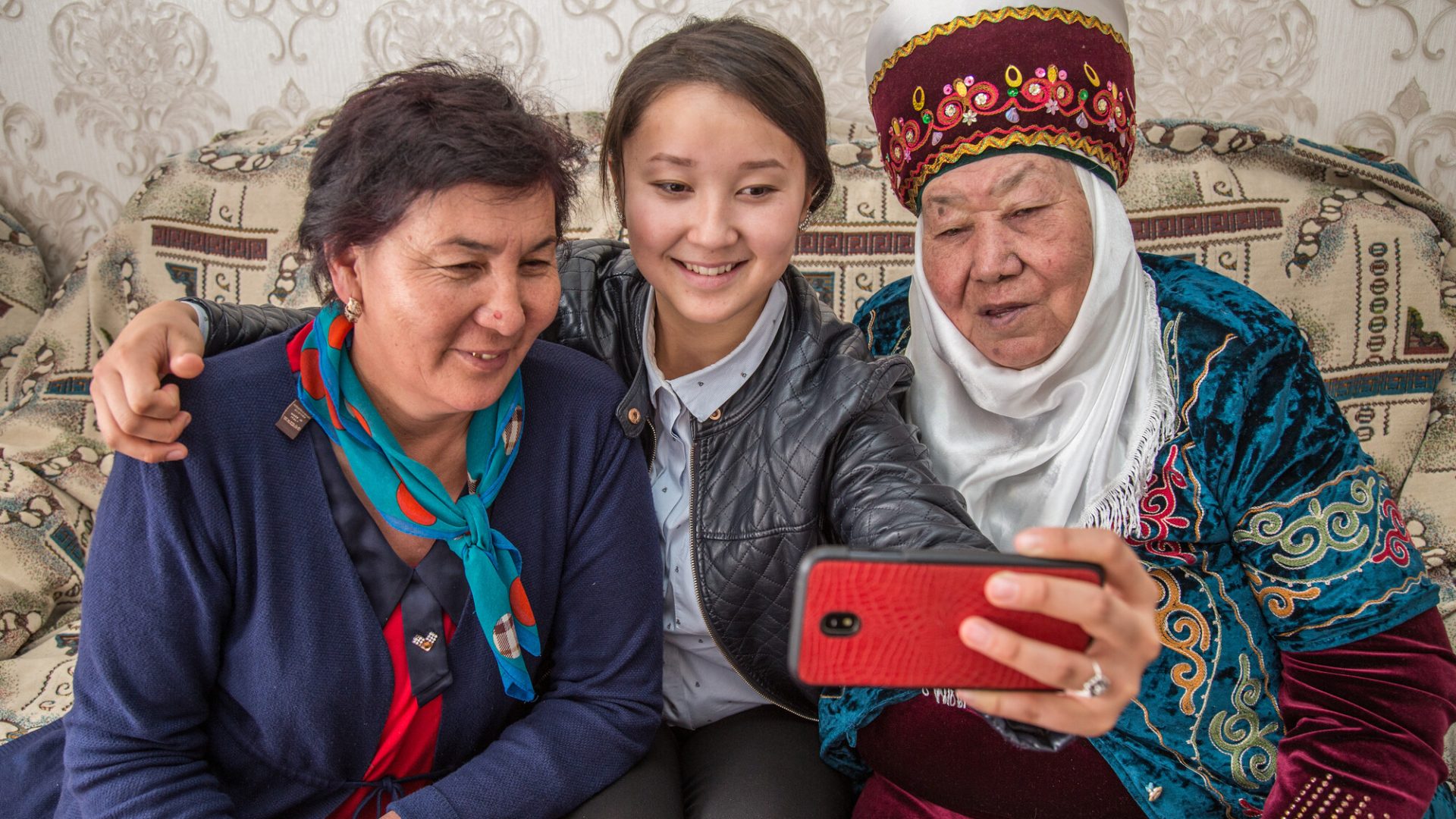Balykchy is a small town at the western end of Lake Issyk-Kul in eastern Kyrgyzstan, and I am visiting the town’s Older People’s Association. Many of its members no longer have the company and support of their families around them, a common feature in a country where most of its younger people are now working outside it.
The centre where the older people congregate several times a week, a former school, has clearly seen better days. But it is not the declining facilities that attract them but the simple pleasure of each other’s company. ‘All we need are a few chairs, a roof to stop the rain, a stove to heat our tea and a place to sit and talk,’ claimed one member of the group. ‘It is companionship that we are after. In the absence of our families that is one of the few comforts left us.’
The role of smartphones in older people’s lives
I notice that many of them have smart-phones that on occasion they take out to send or receive messages – much like their much younger counterparts that we passed earlier in town. But I also notice, unlike their grandchildren as far as I can tell, that this does not seem to be a major preoccupation. The space they have primarily created for themselves is to converse and interact. What place do phones have in their lives, I ask them. Has technology caried them with it or left them behind?
Some of the members answer by talking of the Covid pandemic which hit Kyrgyzstan severely, worsened by a high incidence of respiratory disease in the country, the poor state of health services and the long delay until a vaccine arrived. Their phones allowed them to keep in touch with each other during a time when many remained isolated in their homes. Information on how to protect themselves was also shared and what measures to take if they were unfortunate enough to contract the virus.
But despite this agreement, several of the women reminded their companions that once the pandemic subsided they were eager to return to their in-person meetings and that phones were no substitute for the interaction they wanted to have.
Face-to-face connection matters most
‘One thing about people of our generation,’ claimed another older woman, ‘is that we like to relate our stories. We like to share our laughter and tears directly with each other. Phones don’t allow you to do that. And it is something we are all worried about. Do young people know how to have a conversation today? Do they have the patience to listen?’
Another member of the group remarked that one of the things they looked forward to was seeing their families after a long absence when they returned to visit the villages they had left behind. But she lamented the fact that her grandchildren seemed more interested in spending time on their phones than joining a conversation.
‘It is as if their attention is limited to only a few minutes before they have to click away on their phones. When I ask them what it is they are sending to each other all I can see are emojis and a sentence that is never more than a few words long. It is as if their phones are now doing their thinking for them.’
Technology and the loss of tradition
Kyrgyzstan culture, like that of many traditional societies, is transmitted between generations through the form of telling stories and sharing activities. Older people feel valued by having the space to relate their own histories. Yet among many I spoke to during my recent visit, they feel that this respect for their contribution is being lost, that the same technology that allowed them to survive the terrible pandemic a few years ago does not favour the transmission of wisdom and guidance but drowns it out with distraction and noise.
A society facing new challenges
During the week I was there the prominent story many people were talking about was the killing of a girl by one of the boys in her school. This echoes several such teenage killings over the last year. Many older people feel that social media and the influence of external culture is significantly to blame. ‘How do we enjoy the benefits of this technology without inviting its hazards into our society? That is a question we have no answer to today,’ claimed another older man I spoke to.
To which I responded that Kyrgyzstan was not alone in having to address this challenge.
Written by Chris McIvor, Regional Representative, Eurasia and Middle East, HelpAge International
Bringing generations together
Across the world, HelpAge International is working to bridge generational divides and build a society for all ages.

